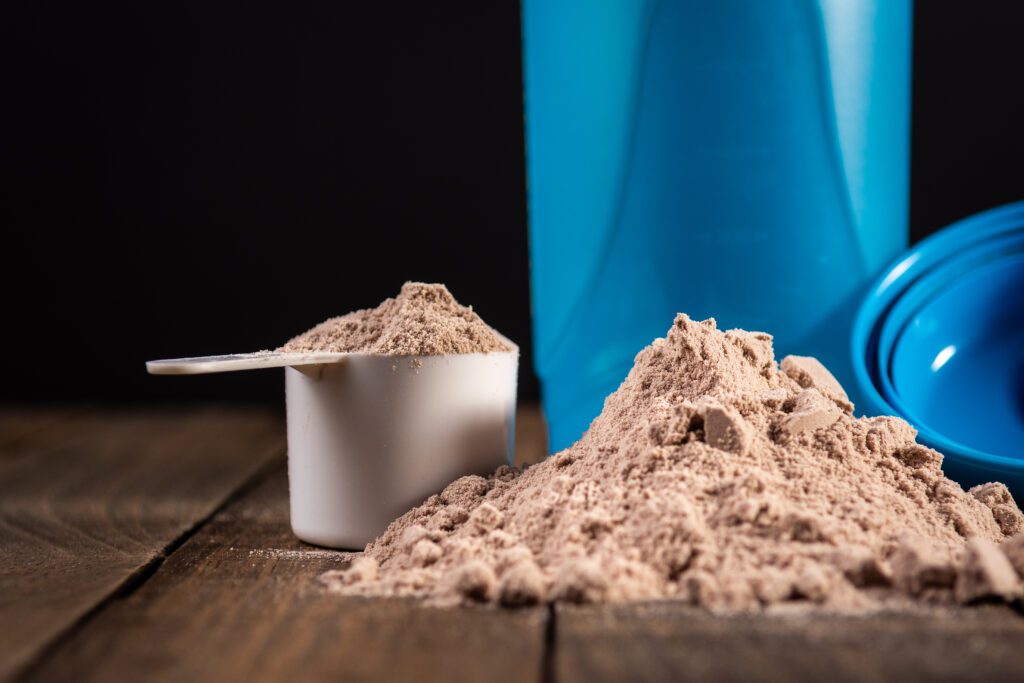Protein powders are everywhere, from gym bags to breakfast smoothies. They’re a staple for athletes, fitness enthusiasts, and even people just trying to get more nutrition into their diets. But a recent study by the Clean Label Project has uncovered some unsettling truths that have health experts and consumers alike taking a second look. While protein powders are marketed as a convenient way to boost your health, many contain hidden contaminants that could do more harm than good.
What the Study Found About Protein Powders
The Clean Label Project, a non-profit focused on product transparency and consumer safety, conducted an in-depth investigation into 160 protein powder products from 70 top-selling brands. These products represent roughly 83 percent of the U.S. protein supplement market. The findings were far from comforting.
Almost half of the tested protein powders were found to contain heavy metals. These included arsenic, cadmium, lead, and mercury. In many of the products, the levels of these contaminants exceeded the safety limits set by state and federal agencies. The results revealed patterns in contamination that seemed linked to the type of protein, flavoring, and even organic labeling.
Plant-Based Powders Had the Highest Contaminant Levels
While plant-based protein powders are often viewed as a healthier or more ethical choice, they had the highest levels of contamination in the study. These powders, often made from rice, peas, or soy, were shown to contain up to three times more lead and five times more cadmium than their animal-based counterparts.
This contamination is likely due to the way plants absorb heavy metals from the soil, particularly in regions with industrial pollution or poor agricultural practices. Rice, in particular, is known for its tendency to accumulate arsenic. Because plant-based powders rely on large quantities of these ingredients, any contaminants become concentrated in the final product.
Read More: Natural Foods That Deliver Magnesium Better Than Supplements
Chocolate Flavors Were Especially Problematic
Not all flavors are created equal when it comes to contamination. Chocolate-flavored protein powders contained significantly more cadmium than vanilla or unflavored varieties. In some cases, the cadmium levels in chocolate powders were up to 110 times higher. Cadmium is a naturally occurring metal found in the earth’s crust, but it is toxic to humans when ingested in large amounts over time. It can accumulate in the kidneys and cause serious health issues such as kidney damage and bone demineralization.
The likely reason for the spike in cadmium in chocolate powders lies in the cocoa powder itself. Cocoa plants also absorb heavy metals from the soil, especially cadmium. This raises a red flag for people who consume chocolate protein shakes daily, assuming they are making a healthy choice.

Organic Does Not Always Mean Safer
One of the more surprising results was that organic-labeled protein powders were more likely to contain higher levels of lead than non-organic versions. This finding challenges a common assumption that organic means cleaner or safer. The term “organic” refers to how ingredients are grown and processed, not whether they are free of heavy metals. In fact, because organic farms cannot use synthetic pesticides or soil treatments, they may rely on natural fertilizers that can contain heavy metals. As a result, organic products are not immune to contamination.
Where Do These Contaminants Come From?
Heavy metals do not appear in protein powders by accident. They originate from several sources, including the soil in which plants are grown, the water used during processing, and even the machinery and packaging materials used in manufacturing. For example, if protein powder is stored in metal-lined containers or exposed to contaminated water during production, the final product can pick up harmful elements without the manufacturer even realizing it.
Because heavy metals are found naturally in the environment, it is difficult to eliminate them entirely. However, the concern is not the mere presence of these contaminants but their concentration and frequency of exposure. Consuming small traces occasionally is unlikely to cause harm, but repeated daily intake can lead to dangerous accumulation in the body.
Health Risks of Heavy Metal Exposure
Heavy metal exposure is not a minor issue. Long-term exposure to arsenic, lead, mercury, or cadmium is associated with a range of health problems. Lead, for instance, is known to affect neurological development, particularly in children. Cadmium has been linked to kidney damage, lung issues, and an increased risk of certain cancers. Arsenic, depending on its form, can cause skin lesions, cancer, and cardiovascular disease. Mercury can impair brain function and harm the nervous system.
These risks are especially concerning for people who use protein powder every day, assuming they are making a positive choice for their health. When consumed regularly over time, even small amounts of these metals can build up in the body and increase the risk of chronic disease.
Read More: Fiber That Is Found In Everyday Foods Can Help Remove Forever Chemicals From Your Body
How to Choose Safer Protein Powders
Not all protein powders are dangerous. Many reputable brands go the extra mile to test for contaminants and meet higher safety standards. One of the most reliable ways to reduce your risk is to choose products that have been certified by third-party testing organizations such as NSF Certified for Sport, USP Verified, or Informed Choice. These groups test supplements for purity, accuracy of labeling, and absence of banned or harmful substances.
Another tip is to avoid chocolate flavors unless you have verified the product’s cadmium levels. Opt for vanilla or unflavored powders when possible. Also, consider switching to whey or collagen-based powders if you are not vegan or lactose intolerant. Animal-based proteins tend to have lower levels of heavy metals, according to the Clean Label Project study.
Rethinking Daily Use of Protein Powders
Many health professionals are now advising people to rethink how often they rely on protein powders. While they are a useful supplement in some situations, whole food sources of protein are generally safer and more nutritious. Eggs, fish, poultry, legumes, dairy products, and nuts all offer high-quality protein without the risks associated with contamination.
Registered dietitians recommend using protein powder as a supplement, not a daily replacement. If you are already getting adequate protein from your meals, adding a scoop or two of powder might be unnecessary. Overuse of supplements can also lead to an imbalance in nutrient intake, especially when the product contains added sugars, artificial flavors, or unnecessary fillers.
The Need for Better Regulation
One of the biggest takeaways from the Clean Label Project’s findings is the lack of oversight in the supplement industry. In many countries, including the United States, dietary supplements are not regulated as strictly as pharmaceuticals. This means manufacturers are not required to prove their products are free of contaminants before they go to market. Without regular independent testing, consumers have no way of knowing what is really in the tub of powder they buy.
Public health advocates have long called for stricter regulations on supplements, including mandatory third-party testing and better labeling standards. Until those regulations are in place, the responsibility largely falls on consumers to research the products they use.

Know What You’re Putting Into Your Body
Protein powders are not inherently dangerous, but they are not automatically safe either. The Clean Label Project’s research should serve as a wake-up call to anyone who assumes that all supplements are created equal. Just because something is sold in a health store or has an organic label does not mean it is risk-free.
If you use protein powder regularly, it is worth taking the time to research your brand, check for third-party testing, and consider switching to products with lower risk of contamination. At the same time, remember that whole food sources of protein are still the gold standard when it comes to nutrition.
Staying informed is the first step toward protecting your health. What you don’t know can hurt you, especially when it comes to what’s hiding in your protein shake.










